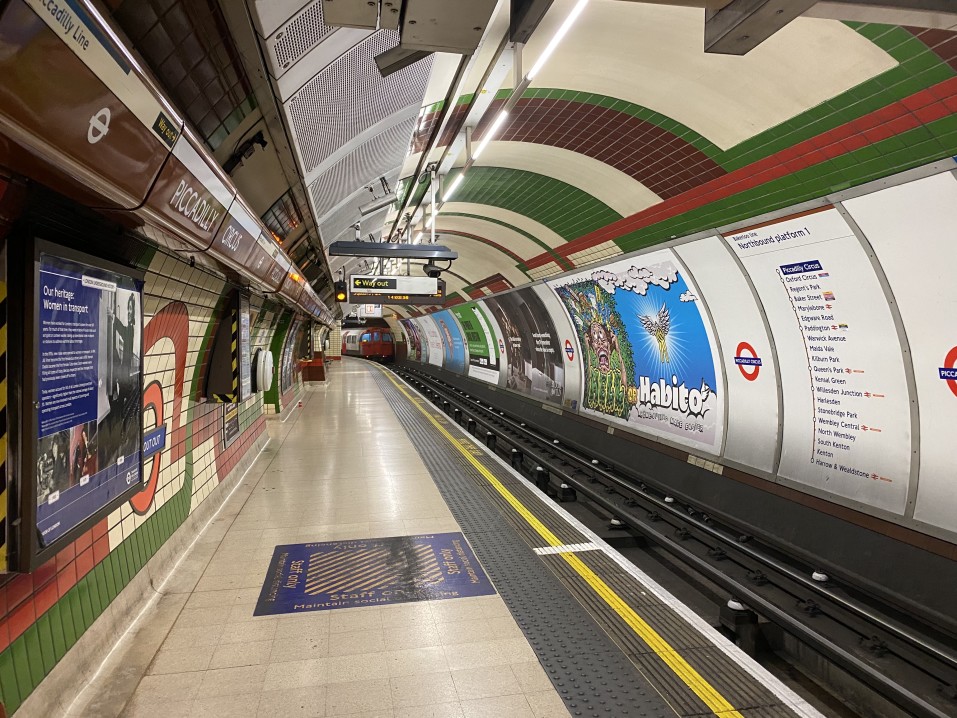40,000 workers downed tools for three days last week.
The “biggest rail strike in history” hit the UK last week, leading to huge disruption and millions of cancelled journeys (including on the days either side of the strikes, thanks to the spillover effects of not having staff about on strike days). The railway workers union, RMT, hopes that the strikes will push train bosses to revise plans that they say disadvantage their members. Such plans include pay freezes, getting rid of 2,500 jobs, and changing the terms and conditions of employment contracts.
The boss in question, Network Rail, say they have no choice but to cut down their budget and employee numbers because their revenues have been massively reduced by the pandemic and its aftermath. Not only do people now have more health worries about travelling on crowded trains, but the rise of remote work means there are now far fewer commuters and business travellers about. (In 2019, almost two-thirds of all rail journeys in England were to get to a place of work, business, or education.) RMT say the financial problems actually come from the government’s decision to reduce its spending on the transport system by billions of pounds, and therefore that reversing this decision would fix the issue.
Strikes are designed to work by causing - or threatening to cause - more economic damage to an employer than they’d take on by acquiescing to worker demands for shorter hours or higher pay or whatever. Workers and bosses often find themselves somewhat opposed on such matters because they have conflicting interests: workers generally want to maximise their finances and wellbeing, bosses generally want to maximise their profits.
In non-unionised, one-on-one situations, employees basically have two options when their boss refuses their request: quit, and hope you can easily find a better job, or refuse to do your work, and hope you don’t get fired. In practice, such hopes are too risky for many workers to chance, leaving bosses with the upper hand in negotiations. Trade unions change this dynamic by making the boss negotiate with the entire workforce instead, who they cannot afford to lose all at once. Unions in the UK have been credited with some of the working rights we now take for granted, such as weekends off and minimum wages.
Despite this, public service strikes are often not popular with the public. This hostility often comes from a sense that it is unfair that passengers should also have to shoulder some economic costs during strikes, such as the hits to wallets and wellbeing that comes from having to miss out on planned events. Indeed, a third of Brits say that train drivers shouldn’t be allowed to go on strike.
Unions would argue that the responsibility for passengers’ costs lies with the train companies, for not treating their employees properly, and that the strikes are necessary to stop its members having longer-term hits to their economic and wellbeing opportunities, especially during a cost-of-living crisis. But some people have wondered if this sort of public backlash could be used by the government as a reason to change the legislation that currently protects union members from being fired or penalised if they go on strike. There is a precedent: union membership and power fell massively in the 1980s after a pissed-off public voted the anti-union government of Margaret Thatcher into power.
Read our explainer on: unions

